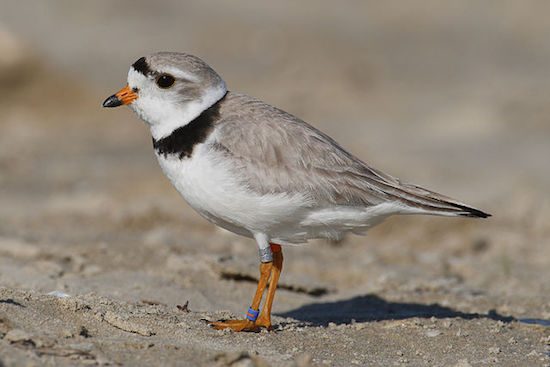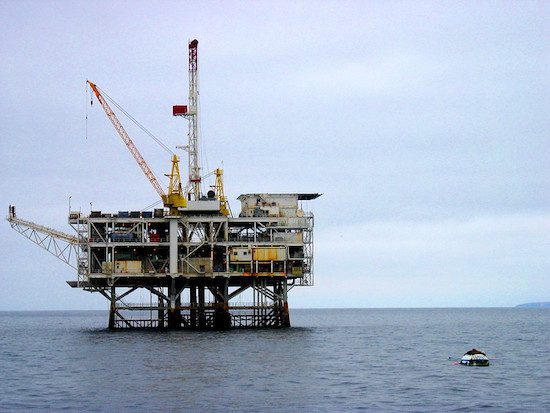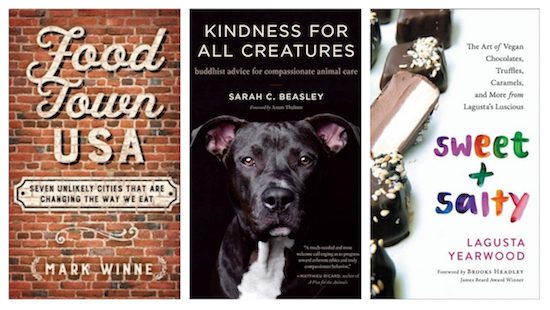


Center for Biological Diversity: The United States’ 566 national wildlife refuges are the world’s largest collection of lands set aside specifically for the preservation of imperiled fish and wildlife. These forests, wetlands and waterways are vital to the survival of thousands of species, including more than 280 protected under the Endangered Species Act. But now, in a huge giveaway to the pesticide industry, the Trump administration has greenlighted genetically engineered (GE) crops and toxic pesticides on these public lands. This action reverses a 2014 decision by the U.S. Fish and Wildlife Service to do just the opposite: ban GE crops and neonicotinoid pesticides throughout the refuge system. And so now 150 million acres of important pollinator and bird habitat will be exposed to increased pesticide use—without considering the risks to the nation’s most endangered species, as required by law.
>>>Urge the USFWS to drop this plan and protect the nation’s wildlife refuges from pesticides.
Care2: A new study has shown that nearly 60 percent of wild coffee species are under threat due to climate change, and several coffee bean species may already be extinct. While the coffee we drink usually comes from cultivated plants and not these wild varieties, the future of coffee—and the livelihoods of many people in underprivileged countries—may depend on wild coffee species. That’s because wild coffee species have traits that can help us future-proof our domestic coffee as climate change and rising disease take their toll—something that researchers say is already happening. Big coffee chains are making mega-profits off the back of coffee, and it is up to them to use some of that wealth to help safeguard wild coffee.
>>>Urge Starbucks, Dunkin’, Lavazza and other major coffee companies to publish concrete strategies that they will use to support wild coffee production and coffee farmers.
Lady Freethinker: Right now, thousands of “pet” primates in the United States are suffering. Held captive by humans, these social, intelligent and emotionally complex animals become depressed, aggressive or diseased—with no hope of a natural life. In the primate pet trade, babies are ripped away from their mothers, who may be forced to breed over and over again by unscrupulous dealers. All primate species—from tiny monkeys to larger apes, such as chimpanzees—are unsuited to life away from their own families. And when they’re no longer cute and compliant, their guardians will often confine them to tiny cages where they’re more easily controlled, or may sell them or attempt to re-home them in overcrowded sanctuaries. But the animals will never lead normal lives, and are forever psychologically damaged. While some states have primate pet bans in place, there is no federal law. The Captive Primate Safety Act aims to address this by banning the sale or purchase of nonhuman primates for the exotic pet trade, both from foreign countries and across state lines.
>>>Urge Congress to pass the Captive Primate Safety Act.
Cause for concern…

- Revealed: The 20 firms behind a third of all carbon emissions (Matthew Taylor and Jonathan Watts, The Guardian)
- Trump administration proposes expanding logging in Alaska’s Tongass National Forest (Juliet Eilperin, Washington Post)
- U.K. will miss 2050 emissions target unless it implements vegan policies, report says (Anna Starostinetskaya, VegNews)
- Last year’s extreme snowfall kept most plants and animals in one Arctic ecosystem from reproducing (Jonathan Lambert, ScienceNews)
- The world loses $400 billion of food before it reaches stores (Agnieszka de Sousa, Bloomberg)
- It’s only $4.99, but Costco’s rotisserie chicken comes at a huge price (Nathaniel Meyersohn, CNN)
- Climate change is killing thousands of years of Indigenous farming wisdom (Peter Schwartzstein, National Geographic)
Round of applause…

- California governor signs bill banning most animals from circuses and the sale of new fur (Associated Press)
- Almost 70,000 Australians have signed a petition to grant the Great Barrier Reef Australian citizenship, which would help protect the world’s largest living organism from climate change (LADBible Australia)
- This ‘artificial leaf’ successfully produces clean fuel (The Telegraph UK)
- Santa Fe mayor declares November “Vegan Awareness Month” (Heather Shields, Lady Freethinker)
- Vegan school lunches expand nationwide despite opposition from meat industry (Elaine S. Povich, Press Herald)
- Celebrities are asking Brits to go vegan for 24 hours on World Vegan Day (Vegan Food and Living)
- And the world’s best city for vegan-friendly dining is… (Sarah Todd, Quartz)
- Monkeys outperform humans when it comes to cognitive flexibility, study finds (Georgia State University)
What we’re reading…

In his new book Food Town, USA: Seven Unlikely Cities That are Changing the Way We Eat (Island Press, 2019), food writer Mark Winne takes a tour of surprising and inspiring food destinations—Bethlehem, Pennsylvania; Sitka, Alaska; Alexandria, Louisiana; Boise, Idaho; Youngstown, Ohio; Jacksonville, Florida; and Portland, Maine—to uncover how healthy, sustainable fare is transforming and revitalizing communities impacted by inequity, obesity and the opioid epidemic. While Winne found that most of the cities he visited “either have a food policy council, network, or coalition,” he was particularly struck by how individual action was the genesis of change. “Whether we’re talking about a for-profit entrepreneur, an elected official, a community organizer, or someone who may rise to the level of visionary … the drive and imagination of a relatively small number of people is what’s elevating the food scene.”
Sarah C. Beasley offers a guide to applying compassion and empathy in our relationships with animals in her new book Kindness for All Creatures (Shambhala 2019). Using the Six Perfections of Buddhism as a foundation, Beasley, a senior lay practitioner in the Nyingma School of Tibetan Buddhism, offers insight into how empathy can deepen our relationship to both domestic and wild animals—from pet adoption and breed-bias, to the philosophical difference between ownership vs. guardianship, to the conservation of wildlife and habitat. “On the path to compassion,” she says, “our tasks are to deepen our respect for all creatures and their unique consciousnesses and to find ways to benefit them.”
The unique art of vegan sweets takes center stage in Sweet + Salty (Da Capo Lifelong, 2019), by chef and confectioner Lagusta Yearwood, who uncovers why certain key ingredients can present ethical problems for chefs and consumers, like chocolate (“made with questionable labor practices, including human trafficking and the use of child slaves”) and sugar (“land grabs … that displace indigenous people, deforest and destroy already fragile ecosystems, and threaten habitat loss”). But as her plant-based, cruelty-free recipes for cakes, caramels, truffles, toffee and more demonstrate, desserts can be even more delectable when they’re made with sustainably sourced, fair-trade ingredients. Lagusta, a self-proclaimed “fake back-to-the-land anarcho-punk,” offers this advice: “Ask questions, contact companies. Feel good about what you’re working with so intimately in the kitchen.”
Parting thought…
“The more clearly we can focus our attention on the wonders and realities of the universe about us, the less taste we shall have for destruction.” —Rachel Carson